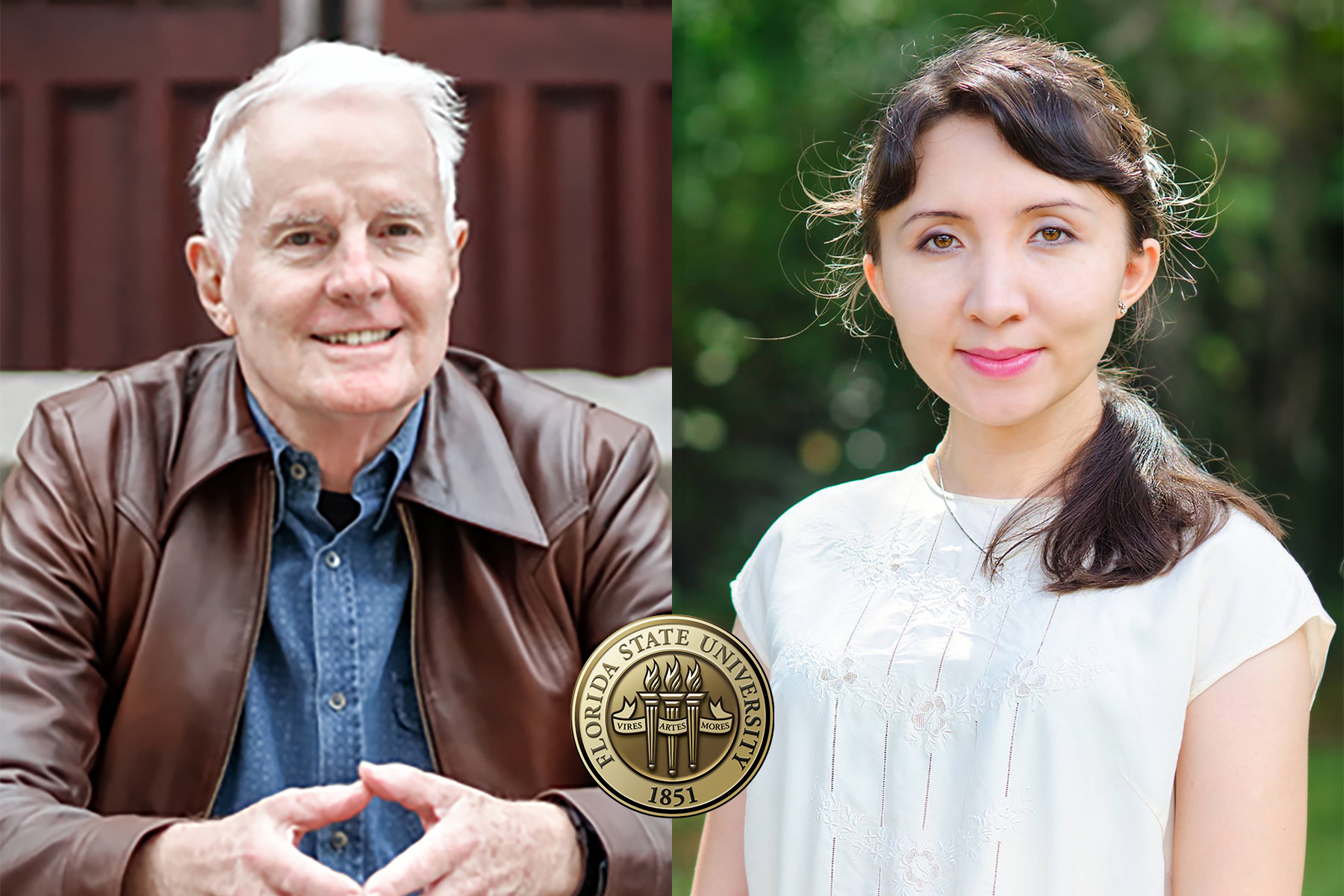
A collaborative musical piece inspired by poetry, chemistry and relationships will be presented Saturday by two Florida State University faculty members as part of the 2024 Festival of the Creative Arts.
“Sing with the Symphony” includes two premieres, including a new musical piece with text taken from the poem “Happy Chemicals,” written by David Kirby, Robert O. Lawton Distinguished Professor of English. The final part of the poem will be set to music by Assistant Professor of Composition Liliya Ugay.
The performance will feature the University Symphony Orchestra and the combined choirs of FSU, along with a unique opportunity for audience participation. The event will take place at 10:30 a.m. Saturday, Feb. 24, in the Ruby Diamond Concert Hall.
“It is thrilling to consider the premiere of two large-scale works in this concert,” said Iain Quinn, festival director and the university’s Research Fellow in the Arts and Humanities. “I am deeply grateful to work with colleagues who have contributed such wonderful pieces to the festival.”
The performance will also feature the premiere of “The Seminole Overture” by Eren Gümrükçüoğlu, assistant professor of composition, and the finale of Erich Wolfgang Korngold’s Violin Concerto in D major, performed by College of Music Associate Professor of Violin Benjamin Sung.
“One of my favorite parts of the festival is it is extremely student-oriented,” Kirby said. “It will be held all over campus and bring faculty and students from different disciplines together, merging new school with old school, electronic and digital — creating harmony and looking for common ground. It would not have been possible without Iain Quinn, who is changing the campus culture for the better through this initiative.”
Kirby and Ugay discussed their creative process and the theme of harmony in their piece, which invites the audience to sing along.
“I love working with words,” Ugay said. “When you read something, it goes by quickly, but when you set it to music, you can take your time and emphasize specific words through sound.”
Kirby described his incorporation of neuroscience into the poem and manipulated English conventions to evoke a specific feeling.
“The poem weaves a braid between chemistry, music and kissing — I even work in a little neuroscience at the end because I’d read an article in The New York Times about how the brain lights up when two people kiss,” Kirby said. “Generally, I’m a stickler for standard English, but here, I use no punctuation at all because I wanted everything to come out in a heady rush.”
Happy Chemicals
DID YOU KNOW you’re just a bunch of chemicals with
an electric charge though you shouldn’t feel bad about that
so am I so is everyone I didn’t mean to hurt your feelings
come on kiss me & let’s make up chemicals are in balance
in nature it’s when we start combining them in new ways
that we create chaos also ecstasy as atoms collide with
or repel one another & electrons zip around them in a rush
to bring separate elements together when I ask my friend
the chemist how many experiments fail he doesn’t hesitate
80% he says and points out as well that chemists like to tell
each other I’ve just come up with something that will either
save humanity or annihilate it though neither ever happens
which is why they keep going back to the lab & trying again
the way lovers do as they pursue & bond & break up with
each other until they find the one person they can’t live
without or the way musicians do when they try to write songs
most attempts at song writing are failures as well though
the ones that work really work in that they release that’s right
chemicals in their listeners’ brains happy chemicals such as
dopamine & oxytocin & serotonin which is why the brain
scan of a person who is staring at a blank wall looks like
a satellite image of North Korea at night whereas a brain
scan of that same person listening to a Bach cello suite
looks like Times Square on New Year’s Eve no wonder
the memory of a great concert can stay with you for years
also that of a great kiss why yes I believe I would like one
and another and another after that and another and one more
“You really feel that transformation of energy, how it goes from this mass molecular chemistry to something very intimate and small,” Ugay said.
The event is free and open to all ages.
For more information, visit research.fsu.edu/fca.



